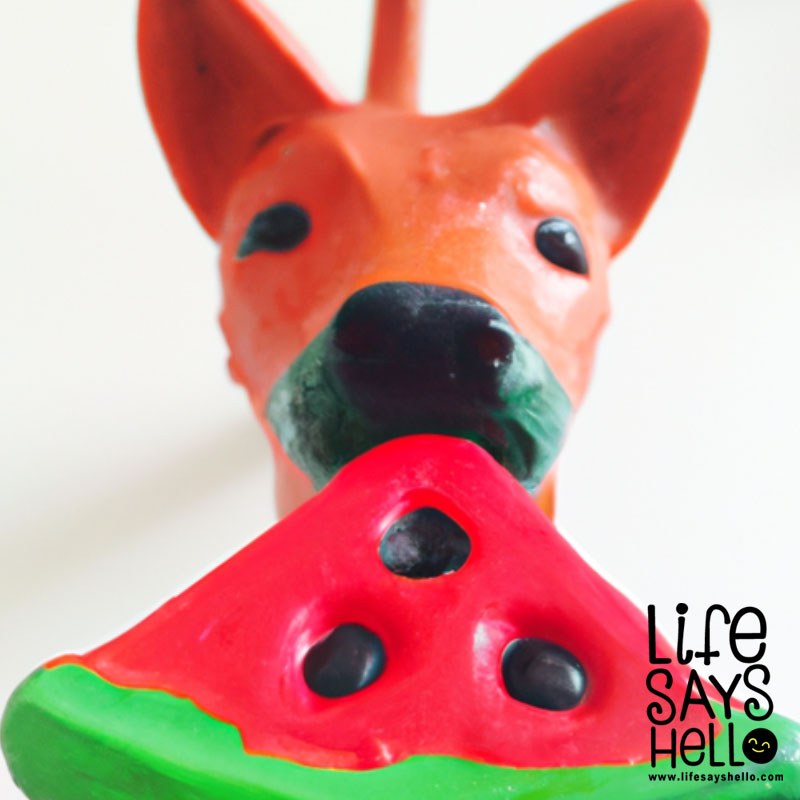Can My Dog Eat Watermelon? A Complete Guide to Safely Sharing This Summer Treat with Your Furry Friend

As the temperatures rise and we reach for a refreshing slice of watermelon, it's only natural to wonder if our canine companions can enjoy this juicy treat too. In this comprehensive guide, we'll explore the nutritional benefits, potential risks, and serving suggestions for sharing watermelon with your dog.
Introduction
Summer is synonymous with backyard barbecues, pool parties, and of course, watermelon. This refreshing fruit is a staple in many households during the warmer months, and as a pet parent, you might be tempted to share a slice with your furry friend. But, can dogs eat watermelon safely? In this article, we'll dive into the nutritional benefits of watermelon for dogs, discuss potential risks and precautions, and offer some creative serving suggestions to ensure your dog can safely enjoy this juicy treat.
The Nutritional Benefits of Watermelon for Dogs
Watermelon is not only a delicious and hydrating treat for humans but also offers a range of health benefits for our canine companions. Here's a closer look at the nutritional content of watermelon and how it can benefit your dog:
Vitamins and Minerals
Watermelon is packed with essential vitamins and minerals that can contribute to your dog's overall health. Some of the key nutrients found in watermelon include:
Vitamin A: This vitamin is crucial for maintaining healthy vision, skin, and coat. It also plays a vital role in supporting your dog's immune system.
Vitamin C: Although dogs can produce vitamin C on their own, supplementing their diet with this antioxidant-rich vitamin can help combat free radicals and support a healthy immune system.
Vitamin B6: This essential nutrient is necessary for proper brain development and function. It also aids in the production of red blood cells and helps regulate blood sugar levels.
Potassium: This mineral is essential for maintaining proper muscle and nerve function, as well as regulating the balance of fluids in your dog's body.
Hydration Benefits
One of the main reasons watermelon is such a popular summer treat is its high water content. In fact, watermelon is made up of about 92% water, making it an excellent source of hydration for both humans and dogs. Offering your dog watermelon on a hot day can help them stay cool and hydrated, especially if they're not particularly fond of drinking water.
Potential Risks and Precautions
While watermelon can be a healthy and refreshing treat for dogs, there are some potential risks and precautions you should be aware of before sharing this fruit with your furry friend.
Choking Hazards
The seeds and rind of a watermelon can pose a choking hazard for dogs, particularly smaller breeds. The seeds can also cause intestinal blockages if ingested in large quantities, so it's essential to remove them before offering watermelon to your dog. Additionally, the rind can be tough for dogs to digest and may lead to gastrointestinal upset if consumed.
Digestive Issues
While most dogs can tolerate watermelon in moderation, some may experience digestive issues such as diarrhea or an upset stomach. This is particularly true for dogs with sensitive stomachs or those who are not used to consuming fruits. To minimize the risk of digestive problems, start by offering your dog a small amount of watermelon and monitor their reaction.
Allergic Reactions
Although rare, some dogs may be allergic to watermelon. If you notice any signs of an allergic reaction, such as itching, swelling, or difficulty breathing, stop feeding your dog watermelon and consult your veterinarian immediately.
How to Safely Serve Watermelon to Dogs
To ensure your dog can safely enjoy watermelon, follow these tips:
Remove the seeds: Although the seeds are small, they can still pose a choking hazard or cause intestinal blockages in dogs. Be sure to remove all seeds before offering watermelon to your pet.
Remove the rind: The rind of a watermelon can be difficult for dogs to digest and may lead to gastrointestinal upset. Always remove the rind before serving watermelon to your dog.
Cut into small pieces: To minimize the risk of choking, cut the watermelon into bite-sized pieces that are appropriate for your dog's size.
Serve in moderation: As with any treat, it's important to offer watermelon to your dog in moderation. Too much watermelon can lead to digestive issues or contribute to weight gain, so be sure to balance their diet with other nutritious foods.
Serving Suggestions
Now that you know how to safely serve watermelon to your dog, here are some creative ideas for incorporating this juicy treat into their diet:
Frozen watermelon treats: Cut watermelon into small pieces, remove the seeds, and freeze for a cool and refreshing treat on hot summer days.
Watermelon smoothie: Blend seedless watermelon with a bit of water or dog-friendly yogurt and pour into ice cube trays for a hydrating and tasty frozen treat.
Mixed fruit salad: Combine watermelon with other dog-friendly fruits, such as blueberries, strawberries, and apples, for a colorful and nutritious snack.
Watermelon popsicles: Puree seedless watermelon and pour the mixture into popsicle molds or ice cube trays. Insert a small, dog-friendly chew stick into each mold before freezing for a fun and interactive treat.
Alternatives to Watermelon
If your dog isn't a fan of watermelon or if you're looking for other dog-friendly fruits to offer as treats, consider these options:
Blueberries: These antioxidant-rich berries are a great source of vitamins and minerals, making them a nutritious snack for your dog.
Strawberries: Packed with vitamin C and fiber, strawberries can be a tasty and healthy treat for your furry friend.
Apples: Rich in fiber and vitamins A and C, apples can help keep your dog's teeth clean and support overall health. Just be sure to remove the seeds and core before serving.
Conclusion
In summary, watermelon can be a safe and healthy treat for dogs when served properly and in moderation. By removing the seeds and rind, cutting the fruit into small pieces, and offering it as an occasional treat, you can help your dog stay cool and hydrated during the hot summer months. So go ahead and share a juicy slice of watermelon with your furry friend, knowing you're providing them with a delicious and nutritious snack.




Comments